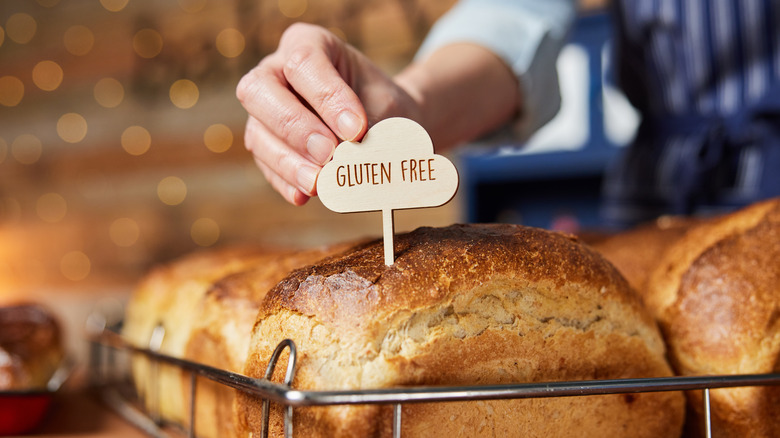Can Gluten Sensitivity Happen Later In Life?
Having an allergy or intolerance over a specific ingredient or food requires extra diligence on your part to find food that your body can tolerate. This may be difficult to do, especially if this is a sensitivity you haven't grown up with. Take gluten, for example. Gluten is found nearly everywhere in the typical American diet. What is gluten? According to SFGate, gluten is the main protein found in wheat, barley, and rye. Those who are sensitive or completely intolerant to the protein may experience one or many uncomfortable symptoms after ingestion including abdominal pain, bloating, diarrhea, brain fog, and constipation.
According to Beyond Celiac, approximately 18 million Americans are living with a sensitivity to gluten. If you don't consider yourself to be a part of this population, take pause because you can become gluten intolerant at any age, per SFGate, even if you never experienced any of the uncomfortable side effects from enjoying a gluten-filled meal before. Every day, you could be filling up on sandwiches, pasta, cereals, and even deli meats with no reaction. Then suddenly, the next time you enjoy a plate of pasta, you feel like your stomach has been tied into a bunch of painful knots.
Cutting gluten from your diet can quickly make you feel better
According to Verywell Health, the first thing you want to do if you suspect a gluten allergy is to consult with your doctor and take a test to rule out celiac disease, an autoimmune condition that triggers an attack on the small intestine lining after consuming foods with traces of gluten (via Verywell Health). Once celiac disease has been ruled out, your doctor might ask you to test your eating habits by eating a diet for six weeks with gluten, then directly followed by a strict six-week diet sans gluten. You can map your symptoms of gluten sensitivity from the very start to find out if any discomfort you have is relieved once gluten is cut out of your diet.
It won't take very long before you start to feel relief after removing these specific foods you've identified. Verywell Health claims that many people who are sensitive to gluten feel better after just a few days of removing it from their diet. Emotionally, it may not be easy. SFGate shares that it is normal to go through a grieving period after being diagnosed with gluten sensitivity, given that you will no longer be able to eat what were some of your favorite foods like cereal, pizza, and french fries. Fortunately, living your life free of the uncomfortable symptoms caused by gluten may be the only motivation you need.


